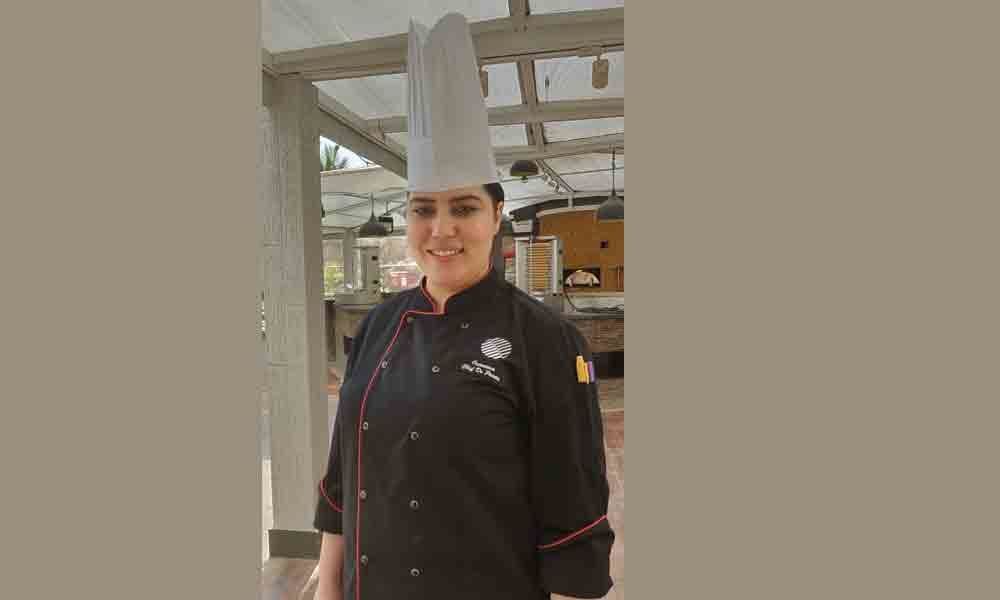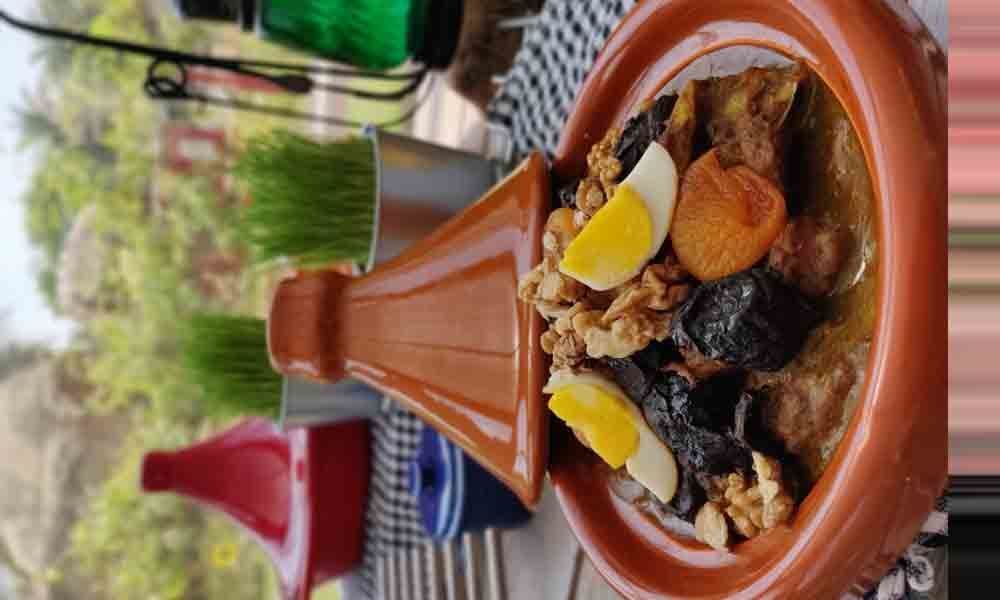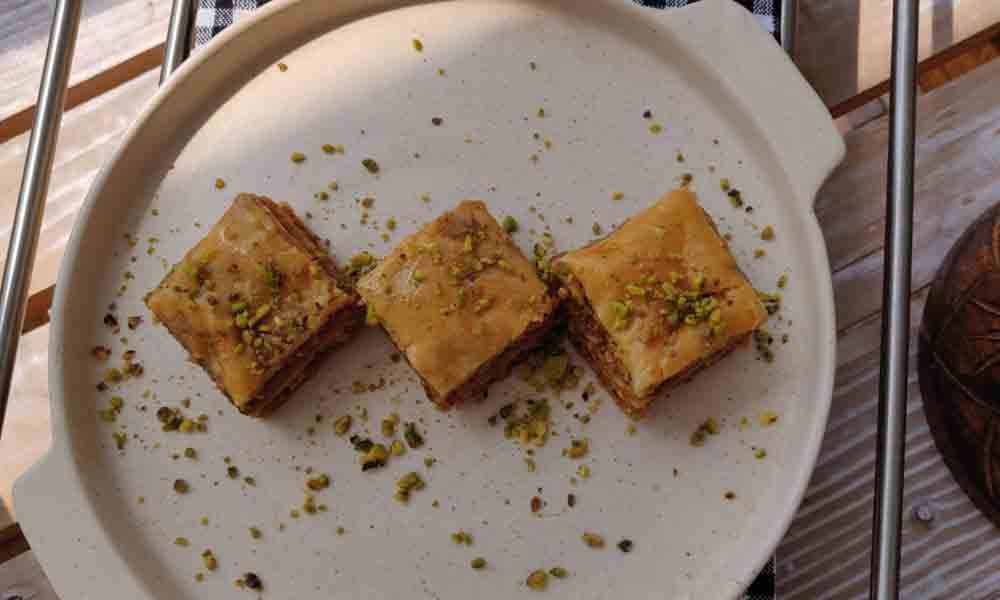Flavours from the tagine
Novotel Hyderabad invited Chef Oumaima Bejja, a culinary expert in Arabic and Moroccan cuisine from Pullman Dubai to recreate the best of the Moroccan cuisine
Morocco, the gateway to Africa enjoys a strategic confluence of cultures influencing its food habits. Slow cooking methods in the conical shaped tagines, pickled lemons, olives, cheese, dry fruits, especially walnuts, prunes, fresh vegetables, meats, sea food, spices lending themselves to interesting dishes with familiar flavours yet unique in taste make this cuisine exotic enough to attract the world attention. The highlight is, ofcourse, the tagine, meat slow cooked with spices to make it tender and juicy and just the right bit flavoured with spices like Paprika, turmeric powder, ginger powder.
Novotel Hyderabad invited Chef Oumaima Bejja, a culinary expert in Arabic and Moroccan cuisine from Pullman Dubai to host a food festival at their coffee shop, Food Exchange. And on the menu the chef ensured there was meat tagine, which looked and tasted divine with its profusion of walnuts, prunes soaking in the gravy along with the meat. There was also the chicken tagine with olives, which is best had with the pickled lime. In earlier times there were earthen tagines (pots wth conical lids) that cooked over burning coal. "Nowadays we don't use tagine for cooking; rather, it's used for serving the food," says the Chef, who remembers wistfully, "However, when cooked in traditional method in a tagine, it tastes out of this world."
Moroccans use couscous instead of rice. There was couscous khodar on the promotional menu and it was surprisingly tasty for a simple vegetarian preparation. Couscous is also cooked with meats. Going back to what usually comes first – the cuisine has its share of salads, and then there is the hummus, babaganoush, mutabal, tabouleh, fattoush – the mezze platter that can be had with Pita bread or in this case Moroccan bread. While some of the dishes on the menu are familiar for the initiated, the chef introduces Hyderabadi food connoisseurs to unique dishes like the Pastilla dajaj – stuffed filo pastry with chicken and almond and Pastilla Samak with seafood. The cuisine shares many commonalities with Arab food, and this is ever so evident in the dessert menu that had the likes of Basbousa and Baklava – however Chef Oumaima ensured there was her special touch to the dishes adding a slight edge to the familiar dishes on the menu. And FYI the desserts are a must try as well.
Moroccan Food Festival is on at Food Exchange for dinners until April 21.











